HEALTH & WELLNESS

VOTING BOOTH

TRENDING

LIONS FOUNDATION OF CANADA DOG GUIDES
Lions Foundation of Canada Dog Guides and its founding program, Canine Vision Canada, was established in 1983. It’s the largest school of its kind in Canada with its training school in Oakville and breeding facility in Breslau.
Heart Disease in Dogs

THE HEART
Just like people, dogs can suffer from many of the same diseases, including heart disease (otherwise known as cardiomyopathy).
When blood – which transports oxygen and nutrients – is unable to reach a certain part of the heart muscle, tissue damage and tissue death occur, preventing the affected part from effectively pumping blood throughout the body.
Two Categories of Heart Disease
There are two categories of heart disease that dogs can fall under.
Acquired Heart Disease
- Accounts for 95% of all heart conditions
- This disease develops during the course of your dog’s life
- This acquired condition could be due to infection, injury, or just the normal wear and tear that occurs on a dog’s heart throughout his lifetime
- Most cases of heart disease in dogs are considered the acquired variety
There are two principal causes of acquired heart disease:
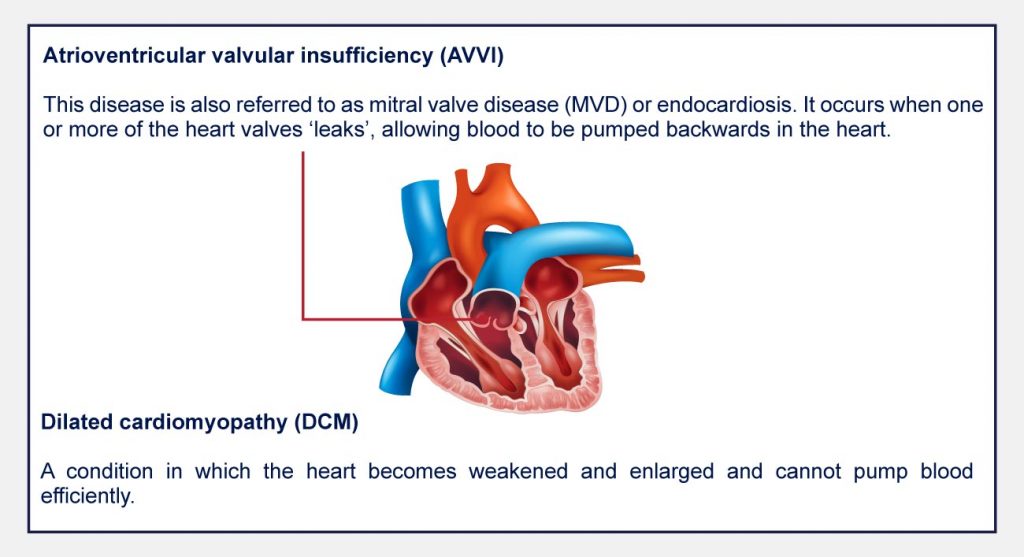
Congenital Defects
- Heart problems that your dog is born with
- Will usually be diagnosed when your dog is still a puppy
- Account for a very small percentage of the diagnosed heart-related problems
SIGNS OF AVVI AND DCM
In the early stages, signs of atrioventricular valvular insufficiency (AVVI) or dilated cardiomyopathy (DCM) are most likely to be subclinical. This preclinical phase can last for months or years. However, as the heart deteriorates and cardiac output decreases over time, AVVI and DCM ultimately lead to congestive heart failure (CHF) in dogs.
Common clinical signs of CHF that may appear as AVVI or DCM progresses include:
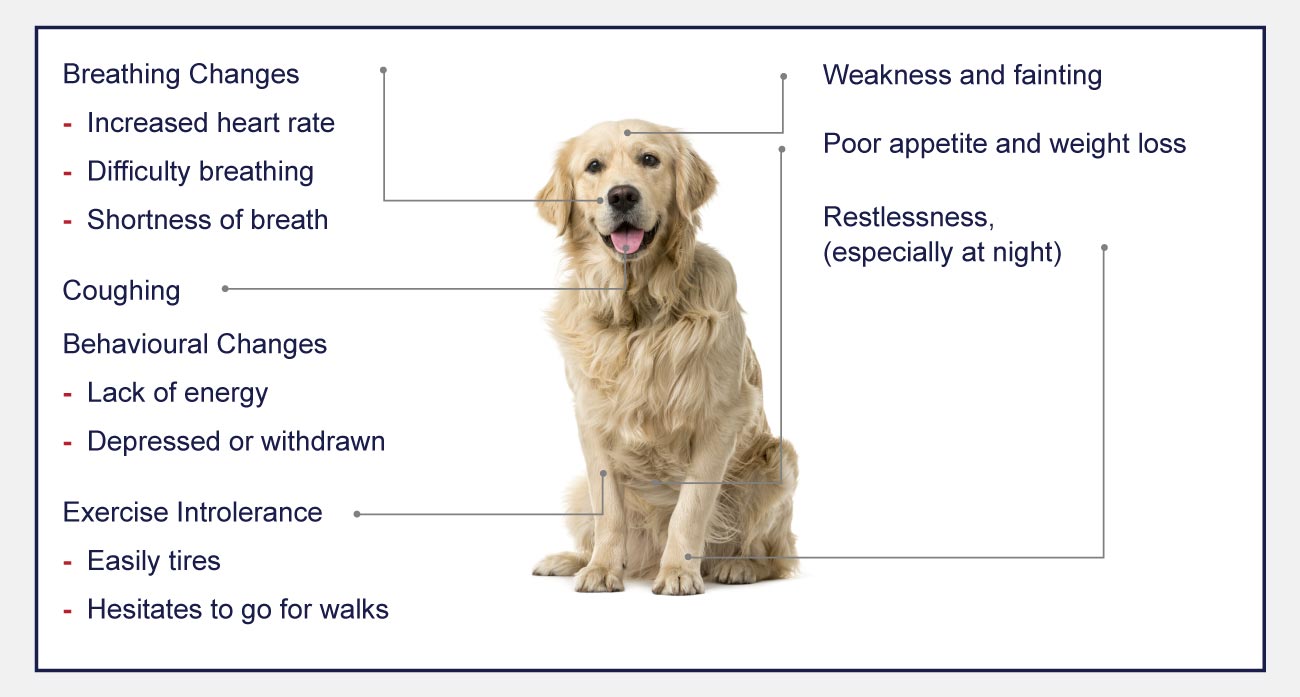
As soon as clinical signs appear, it’s important to get therapeutic intervention immediately.
No cure for CHF exists and surgical intervention is rarely practical in canine patients, so therapeutic goals focus on improving clinical signs and prolonging life.
Causes of Canine Heart Failure
The heart muscle is called the myocardium. An infarction is the obstruction of the blood supply to an organ or region of tissue. Myocardial infarction, which literally means ‘heart tissue damage or death’, is the medical term for a heart failure that is deadly and needs immediate medical attention.
Heart failure in dogs is rare. Some causes may include:
TUMOUR
When a tumour grows on or around the heart vasculature (blood vessels), it can block blood flow to the heart muscle.
HYPOTHYROIDISM
When the thyroid gland fails to produce thyroxine hormone which turns food into fuel for the body.
NEPHROTIC SYNDROME
Kidney disease which results in kidney damage can lead to loss of protein that helps prevent blood clots from forming which can cause canine heart attack.
BACTERIAL INFECTION
Blood flow to the heart muscle can be hindered due to inflammation and blockage caused by infection.
VASCULITIS
Inflammation of blood vessels can be caused by infection, immune-mediated disease or other injury to endothelial linings.
ATHEROSCLEROSIS
It’s rare in dogs, but plaque buildup can restrict blood flow and even lead to artery rupture.
CORONARY ARTERY DISEASE
Although also very rare in dogs, damage or disease in the heart’s major blood vessels can happen with severe hypothyroidism and associated high serum cholesterol levels.
Heart Failure Symptoms
Not all dogs have the same symptoms and there’s little or no warning before it can happen. The following symptoms are associated with canine heart failure:
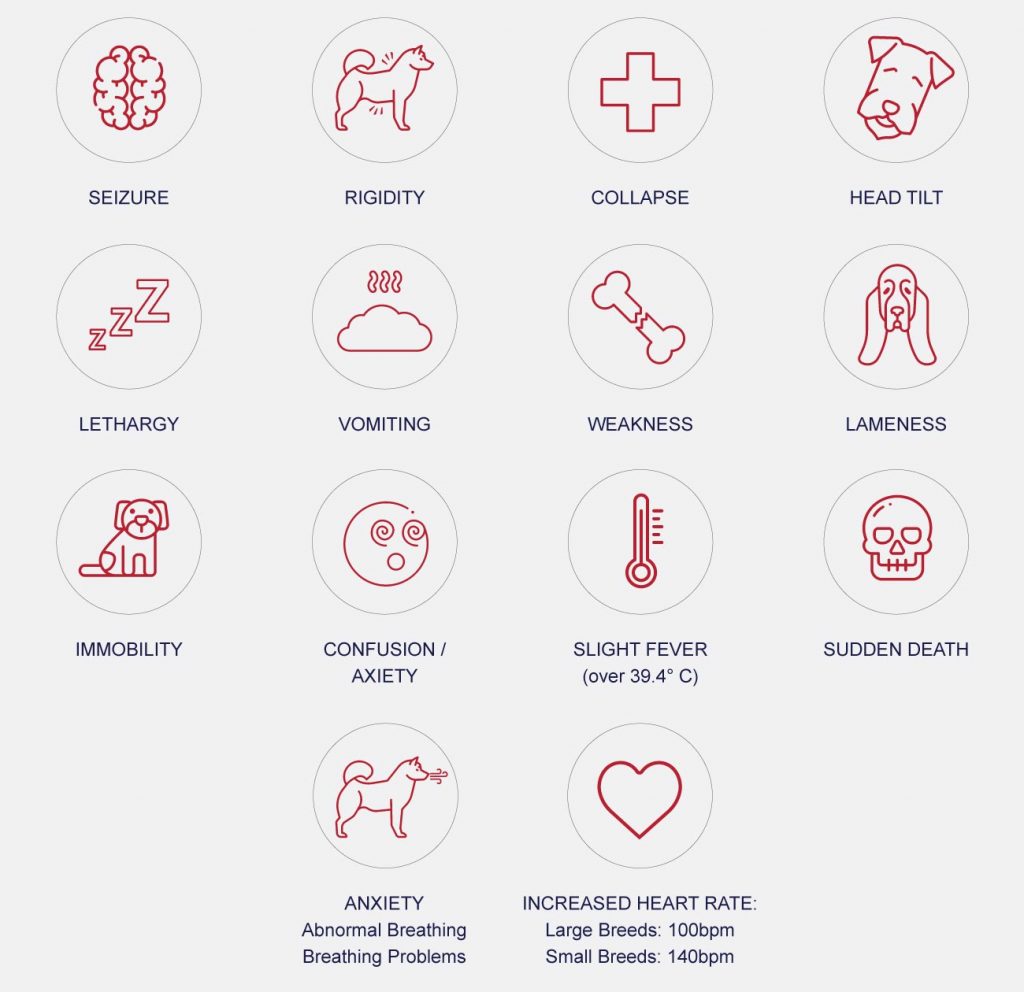
Heart disease in pets may lead to fainting (syncope) which can be confused for a heart attack, but it doesn’t necessarily cause permanent damage.
Diagnosing Canine Heart Failure
In order for a veterinarian to make a diagnosis, a dog owner will need to provide the veterinarian with a detailed description of the signs and symptoms observed, along with a comprehensive health history. A physical examination, with a focus on the cardiovascular system, will also need to take place. Tests, which can help to determine the cause of the heart failure, include:
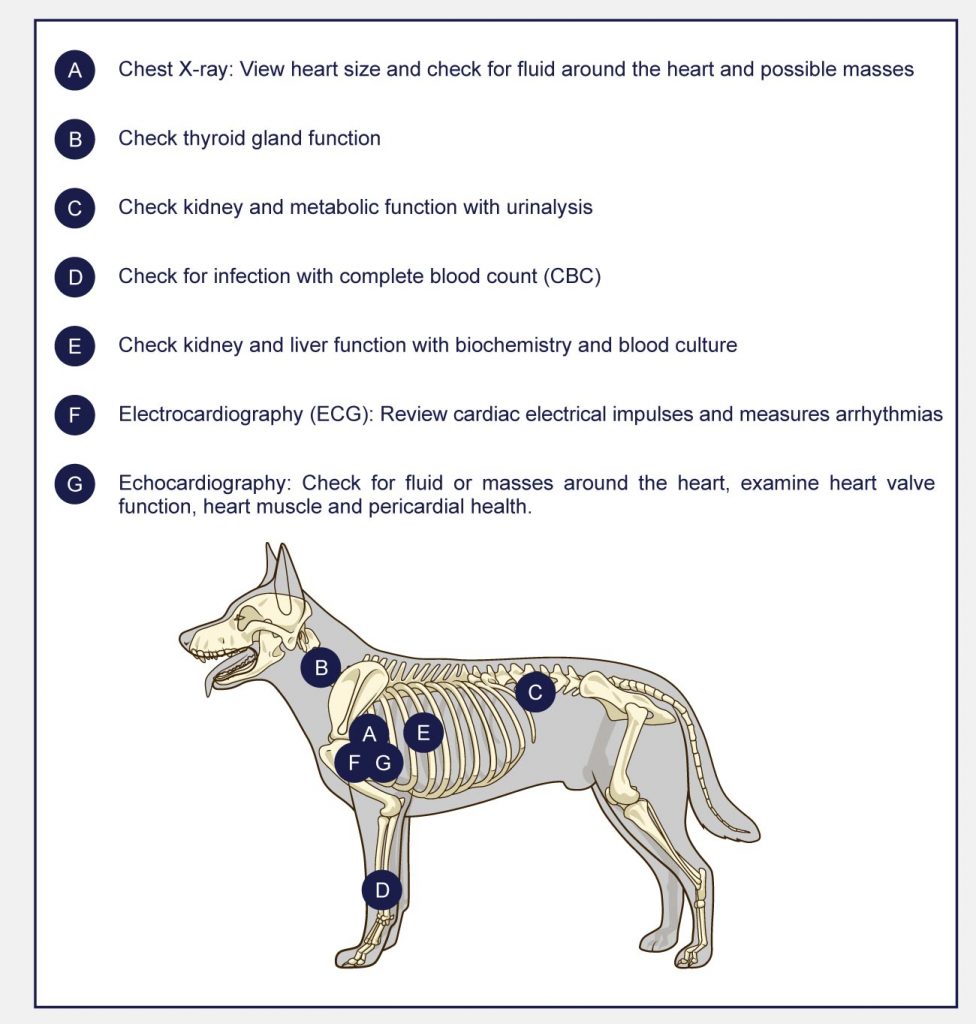
TIP: Ask your veterinarian about a holter monitor/ambulatory ECG for monitoring heart health at home.
What to Do When You Think Your Dog is in Heart Failure
- Stay calm and contact a veterinarian immediately.
- Keep other pets and children away from your dog.
- Food or water intake could be dangerous so rather prevent it.
- Minimize or eliminate stimuli because it could contribute to panic.
- To comfort your dog, you can wrap him/her in a blanket if it’s not a hot day.
- CPR is not recommended, unless you’re professionally trained and know it’s necessary.
- You can attempt to record heart rate to determine if it improves. Ask your veterinarian how.
- Safely and comfortably transport your dog to the veterinarian if he or she collapses.
Treatment and Recovery Plan
There are various courses of action to consider. The best option will depend on the affected dog and severity of the heart disease. One or a combination of the following could be recommended to regain and maintain normal heart activity:
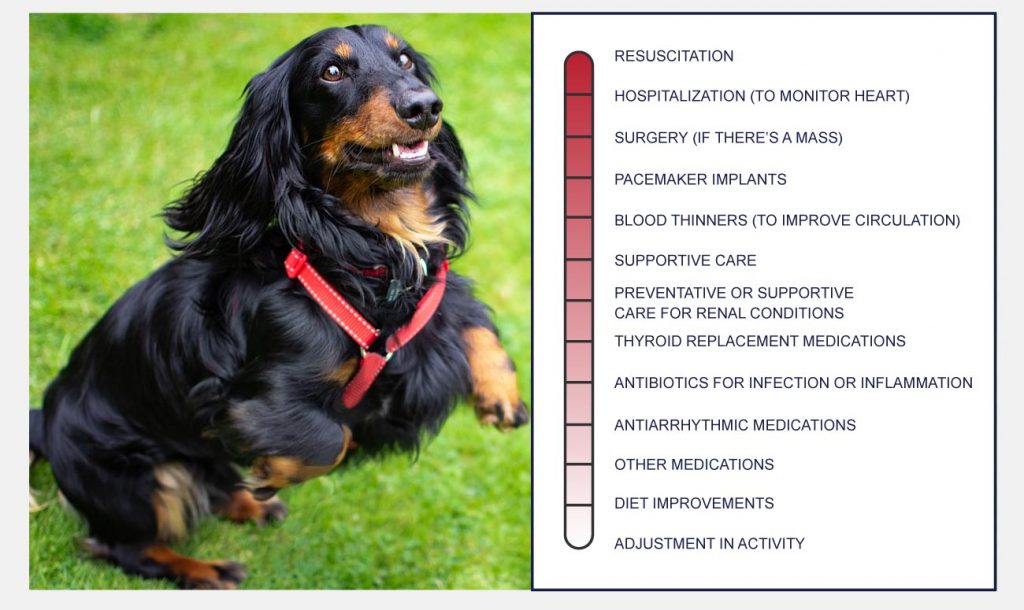
Accurate diagnosis and appropriate treatment can help dogs with heart disease live long, happy lives.
Recovery and Health Management for Dogs in Heart Failure
Recovery will depend on how serious the heart condition is (extent and duration), what caused it and how the cause(s) can be treated. For some causes, treatment may have to continue for the rest of the dog’s life. Regular checkups, tests and monitoring may also be necessary. The pet owner could benefit from learning how to check vital signs at home.
Related Articles








